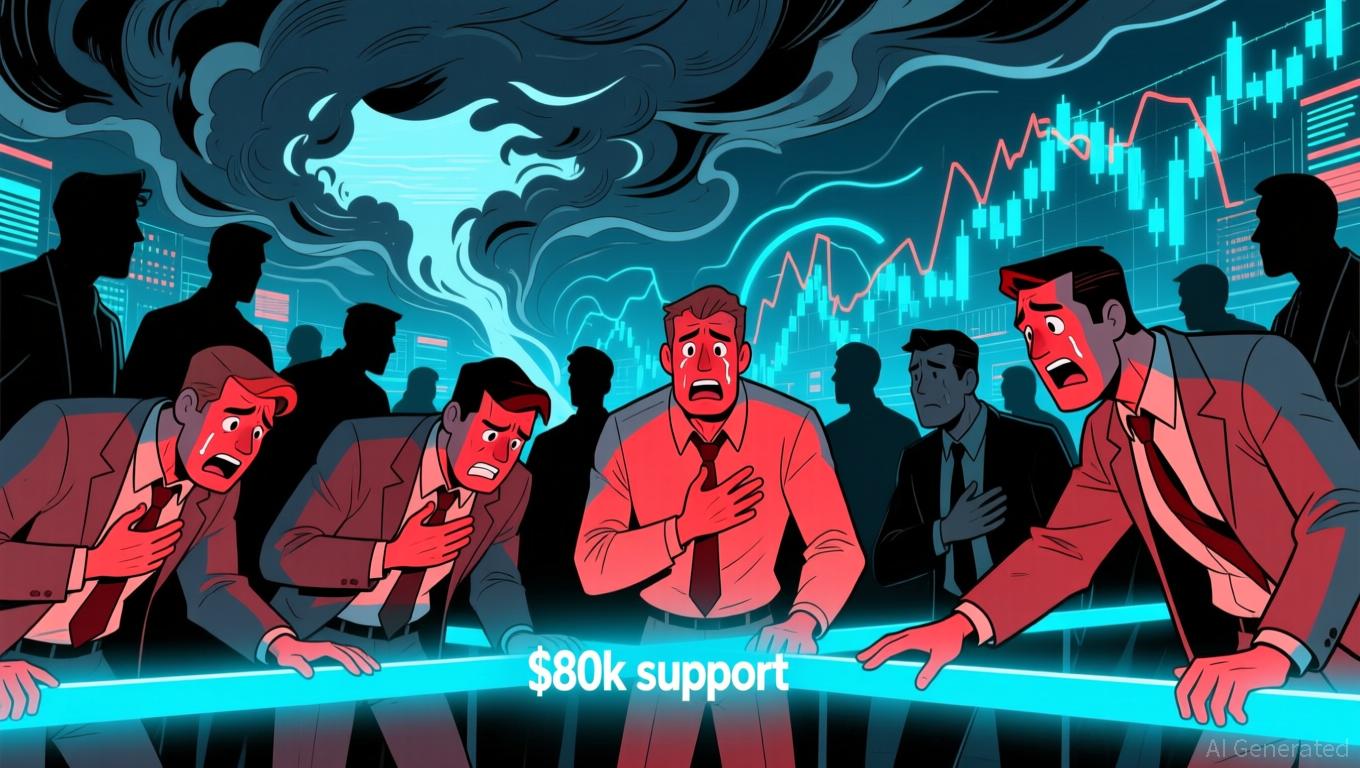Security Concerns Hinder Nigeria's 5G Aspirations
- Nigeria's 5G coverage remains at 3% three years post-launch, lagging behind regional peers and global trends like MENA's projected 48% adoption by 2030. - Security crises, including 300+ schoolkid kidnappings, have diverted government resources from infrastructure, delaying 5G rollout amid economic instability. - Despite 15.7% annual fintech growth, Nigeria's embedded finance sector faces innovation limits without widespread 5G to enable real-time data processing. - Contrasting South Africa's 20% online
Three years after the introduction of 5G in Nigeria, coverage remains limited to just 3% of the country—significantly trailing behind other nations in the region and hampering Nigeria’s digital transformation goals. While demand for advanced connectivity is rising across Africa—

The slow pace stands in stark contrast to the Middle East and North Africa (MENA), where
Authorities have yet to clarify the reasons behind the sluggish deployment, but
Security concerns have only made matters worse.
Meanwhile, South Africa—a digital frontrunner in the region—is considering
This scenario highlights a wider divide in Africa’s digital progress: while
Disclaimer: The content of this article solely reflects the author's opinion and does not represent the platform in any capacity. This article is not intended to serve as a reference for making investment decisions.
You may also like
U.S. Banks Finally Secure Approval to Hold Ethereum as Crypto Demand Surges
Quick Take Summary is AI generated, newsroom reviewed. Regulators approved US banks holding Ethereum, marking a major shift in digital asset integration. Client demand for regulated crypto custody continues to rise across major banks. The approval boosts institutional crypto adoption and expands investment opportunities. Ethereum gains long-term strength as Ethereum market demand grows with banking involvement.References BULLISH: 🇺🇸 U.S. banks now have permission to hold Ethereum!
XRP News Today: Institutional Confidence Meets Market Uncertainty as XRP ETFs Undergo Key Evaluation
- U.S. spot XRP ETFs from Bitwise, 21Shares, Franklin Templeton, and Grayscale mark regulatory progress but face mixed market reactions amid price declines. - XRP dropped 7% below $2 post-launch, driven by whale selling (200M XRP sold in 48 hours) and broader crypto weakness, testing critical support levels. - ETFs aim to bridge traditional and crypto markets with 0.34%-0.5% fees, yet volatility persists as 41.5% of XRP supply now in loss positions. - Analysts highlight $2.195 as a key technical threshold;
Cardano Latest Updates: Partition Issue and Derivatives Market Tension Raise Concerns Over Sudden Price Drop
- Cardano's partition bug disrupted block production, forcing node upgrades and triggering ADA's 3% drop below $0.40 amid network instability fears. - Derivatives markets show $91M in short leverage vs. $11.5M longs, raising flash crash risks to $0.31 as ADA slippage costs a whale $6M during swaps. - Bitcoin's ETF outflows and hedge fund shorting amplify crypto fragility, with daily liquidations hitting $400–500M and ADA's $0.40 threshold under critical pressure. - IOG's disaster recovery protocols aim to
Bitcoin News Update: Institutions Take Advantage of Bitcoin Pullbacks as Selling Pressure Wanes
- Bitcoin's 35% price plunge triggered $900M+ daily losses for short-term holders, marking a record capitulation event since the 2022 FTX collapse. - Macroeconomic uncertainty and Fed rate cut speculation (69% priced in derivatives) intensified volatility amid $3.79B ETF outflows in November. - On-chain data shows exhausted selling pressure, with stabilization above $85,204 support and analysts noting 91% probability of avoiding further declines. - Institutional buyers like Harvard and Japan's Metaplanet a
